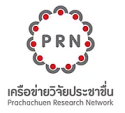เครือข่ายทางสังคมกับการส่งเสริมสุขภาพ
คำสำคัญ:
เครือข่ายทางสังคม, การส่งเสริมสุขภาพ, การสนับสนุนทางสังคมบทคัดย่อ
บทความวิชาการนี้ มีวัตถุประสงค์เพื่อวิเคราะห์และตรวจสอบความสอดคล้องของแนวคิดเครือข่ายทางสังคมกับแนวคิดการส่งเสริมสุขภาพ โดยใช้ตัวแบบการส่งเสริมสุขภาพของ Pender และแนวคิดเครือข่ายทางสังคมเป็นกรอบในการวิเคราะห์ พบว่า ตัวแบบการส่งเสริมสุขภาพและแนวคิดเครือข่ายทางสังคมมีความสอดคล้องกัน โดยสุขภาพของบุคคลเกิดจากองค์ประกอบ คือ 1) ปัจจัยส่วนบุคคล ได้แก่ ปัจจัยทางชีวภาพ ปัจจัยทางด้านจิตวิทยา 2) ปัจจัยด้านพฤติกรรมที่ส่งผลต่อสุขภาพ และ 3) ปัจจัยทางสังคมและสิ่งแวดล้อม ขณะที่เครือข่ายทางสังคมสอดคล้องกับแนวคิดการส่งเสริมสุขภาพ โดยการสนับสนุนทางสังคมภายใน เครือข่าย จะนำไปสู่ผลกระทบในเชิงบวกต่อสุขภาพทั้งทางร่างกายและจิตใจของบุคคล ทำให้สามารถปฏิบัติและพัฒนาสุขภาพ ให้บรรลุการมีสุขภาพที่ดีและอยู่ในสังคมได้อย่างมีความสุข
เอกสารอ้างอิง
กรุงเทพธุรกิจ. (2563). 10 เทรนด์สุขภาพคนไทยที่น่าห่วงปี 2563. สืบค้นจาก https://www.bangkokbiznews.com/news/detail/858971
จักรพันธ์ เพ็ชรภูมิ. (2561). พฤติกรรมสุขภาพ แนวคิด ทฤษฎี และการประยุกต์ใช้ (พิมพ์ครั้งที่ 2). พิษณุโลก: สำนักพิมพ์มหาวิทยาลัยนเรศวร.
จิรภัทร เริ่มศรี และนันธารา ธุรารัตน์. (2560). ผลกระทบจากการการใช้สื่อสังคมของวัยรุ่น. วารสารสถาบันเทคโนโลยีแห่งสุวรรณภูมิ, 3(1), 11-20.
ฉัตร์ชัย นกดี. (2563). พฤติกรรมบั่นทอนสุขภาพหนุ่มสาววัยทำงาน. สืบค้นจาก thaihealth.or.th/Content/30835-6%20
ศิริวรรณ ชอบธรรมสกุล. (2560). การดูแลและส่งเสริมสุขภาพผู้สูงอายุสู่คุณภาพชีวิตที่ดี. Ph. D. in Social Sciences Journal, 8(3), 15-25.
หนึ่งหทัย ขอผลกลาง. (2552). พัฒนาการและแนวโน้มของการวิจัยด้านการสื่อสารสุขภาพในประเทศไทย (รายงานการวิจัย). นครราชสีมา: มหาวิทยาลัยเทคโนโลยีสุรนารี.
อาภาพร เผ่าวัฒนา, สุรินธร กลัมพาพร, สุนีย์ ละกำปั่น และขวัญใจ อำนาจสัตย์ซื่อ. (2554). การสร้างเสริมสุขภาพและป้องกันโรคในชุมชน: การประยุกต์แนวคิดและทฤษฎีสู่การปฏิบัติ. ขอนแก่น: หจก.โรงพิมพ์คลังนานาวิทยา.
Berkman, L. F., & Glass, T. (2000). Social integration, social networks, social support, and health. Social epidemiology, 1, 137-173.
Bortz, W. M. (2005). Biological basis of determinants of health. American journal of public health, 95(3), 389-392.
DiMatteo, M. (2004). Social Support and Patient Adherence to Medical Treatment: A Meta-Analysis. Health Psychology, 23(2), 207–218.
Eng, E., & Parker, E. (1994). Measuring community competence in the Mississippi Delta: The interface between program evaluation and empowerment. Health Education Quarterly, 21(2), 199-220.
Ferlander, S. (2007). The importance of different forms of social capital for health. Acta sociologica, 50(2), 115-128.
Fleury, J., Keller, C., & Perez, A. (2009). Social support theoretical perspective. Geriatric Nursing (New York, NY), 30(20), 11-14.
Friel, S., & Marmot, M. G. (2011). Action on the social determinants of health and health inequities goes global. Annual review of public health, 32, 225-236.
Gaskell, G. (2000). Individual and group interviewing. In M. W. Bauer and G. Gaskell (Eds.), Qualitative researching with text, image and sound: A practice handbook (pp. 38-56). Thousand Oaks, CA: Sage.
Heaney, C. A., & Israel, B. A. (2008). Social networks and social support. Health behavior and health education: Theory, research, and practice, 4, 189-210.
Hodnett, E. D., Gates, S., & Hofmeyr, G. J. (2007). Sakala: Continuous support for women during childbirth. Cochrane Databse of Systematic Revies [Internet].
House, J. S. (1987, December). Social support and social structure. Sociological forum, 2(1), (135-146). Kluwer Academic Publishers.
Huber, M., Knottnerus, J. A., Green, L., van der Horst, H., Jadad, A. R., Kromhout, D., ... & Schnabel, P. (2011). How should we define health?. Bmj, 343, d4163.
Kadushin, C. (2012). Understanding social networks: Theories, concepts and findings. New York: Oxford University Press.
Kasl, S. V., & Cobb, S. (1966a). Health behavior, illness behavior and sick role behavior: I. Health and illness behavior. Archives of Environmental Health: An International Journal, 12(2), 246-266.
Kasl, S. V., & Cobb, S. (1966b). Health behavior, illness behavior, and sick-role behavior: II. Sick-role behavior. Archives of Environmental Health: An International Journal, 12(4), 531-541.
Pender, N. J. (1996). Health promotion in nursing Practice (3rd ed.). Stamford: Appleton & Lange, 251.
Pender, N. J., Murdaugh, C. L., & Parsons, M. A. (2015). Health promotion in nursing practice (7th edition). New Jersey: Peason Education, Inc
Thoits, P. A. (1995). Stress, coping, and social support processes: Where are we? What next?. Journal of health and social behavior, 53-79.
Tountas, Y. (2009). The historical origins of the basic concepts of health promotion and education: the role of ancient Greek philosophy and medicine. Health Promotion International, 24(2), 185-192.
Turkat, D. (1980). Social networks: Theory and practice. Journal of Community Psychology, 8(2), 99-109.
World Health Organization. (2003). The Solid Facts: Social Determinants of Health. Copenhagen: WHO. Retrieved from http://www.who.dk/document/e81384.pdf
ดาวน์โหลด
เผยแพร่แล้ว
รูปแบบการอ้างอิง
ฉบับ
ประเภทบทความ
สัญญาอนุญาต
บทความที่ได้รับการตีพิมพ์เป็นลิขสิทธิ์ของวารสารวิชาการสังคมศาสตร์เครือข่ายวิจัยประชาชื่น







